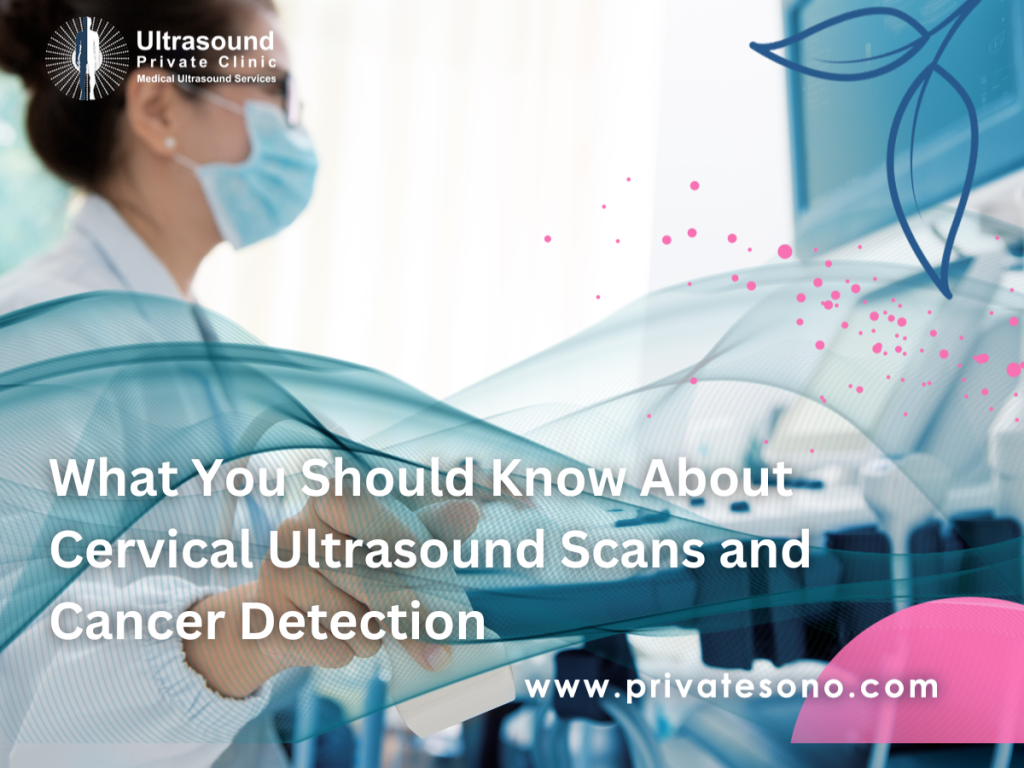Ultrasounds are one of the most commonly used imaging techniques in medicine. From diagnosing pregnancy to detecting heart conditions, they provide a valuable insight into the body. However, ultrasounds are not typically used to detect cervical cancer. In this blog, we’ll explain why this is the case, as well as provide answers to some of the most frequently asked questions about cervical ultrasounds and cancer detection.
What is a Cervical Ultrasound Scan?
A cervical ultrasound scan is a medical imaging test that uses sound waves to create an image of the neck and cervix area. This test can be used to check for any abnormalities in the area, as well as to monitor the growth of a developing fetus. The scan is often done using a transducer that is placed directly on the skin.

Why are Ultrasounds Not Used to Detect Cervical Cancer?
Ultrasounds are not used to detect cervical cancer because they are not as effective as other imaging tests, such as a Pap smear or a colposcopy. A Pap smear is a test that looks for abnormal cells on the surface of the cervix, while a colposcopy is a more detailed examination of the cervix that can detect both pre-cancerous and cancerous cells. Both of these tests are more accurate and reliable for detecting cervical cancer than an ultrasound scan.
Frequently Asked Questions
- What are the benefits of a cervical ultrasound scan?
The primary benefit of a cervical ultrasound scan is that it can be used to monitor the growth and development of a fetus. It can also be used to check for any abnormalities in the cervix or neck area.
- What is the difference between a Pap smear and a cervical ultrasound scan?
A Pap smear is a test that looks for abnormal cells on the surface of the cervix. A cervical ultrasound scan, on the other hand, creates an image of the neck and cervix area. While a Pap smear can detect pre-cancerous and cancerous cells, an ultrasound scan is not as effective for detecting cervical cancer.
- How often should I get a cervical ultrasound scan?
The frequency at which you should get a cervical ultrasound scan depends on your individual circumstances. Generally, it is recommended that women who are of childbearing age get a cervical ultrasound scan every year.
- Does a cervical ultrasound scan hurt?
No, a cervical ultrasound scan does not usually hurt. However, some women may experience mild discomfort when the transducer is placed directly on their skin.
- Is a cervical ultrasound scan covered by insurance?
Most insurance companies will cover the cost of a cervical ultrasound scan if it is medically necessary. You should check with your insurance provider to find out if they cover this particular test.
- Can a cervical ultrasound scan detect cancer?
No, a cervical ultrasound scan cannot detect cancer. Other tests, such as a Pap smear or a colposcopy, are more effective for detecting cervical cancer.
- Is a cervical ultrasound scan safe?
Yes, a cervical ultrasound scan is generally considered to be safe. There is no radiation involved in the test, so it is not associated with any negative health effects.

Conclusion
Cervical Ultrasound Scan is not typically used to detect cervical cancer because they are not as effective as other imaging tests. A Pap smear or a colposcopy is more accurate and reliable for detecting cervical cancer. However, a cervical ultrasound scan can still provide valuable insight into the health of the cervix and neck area, as well as monitor the growth and development of a fetus. If you have any questions or concerns about cervical ultrasounds, it is best to speak to your healthcare provider.
